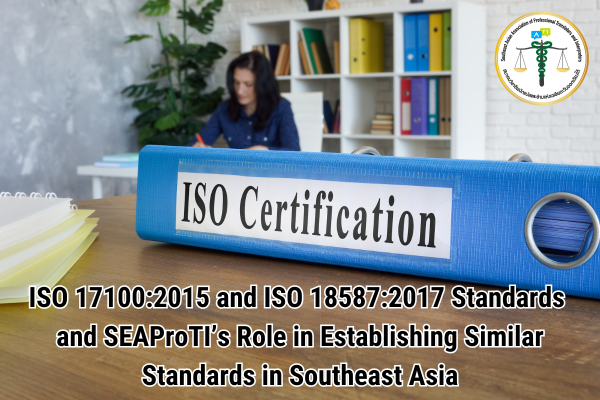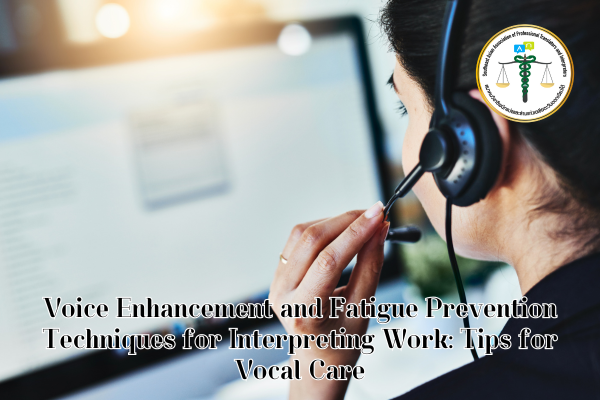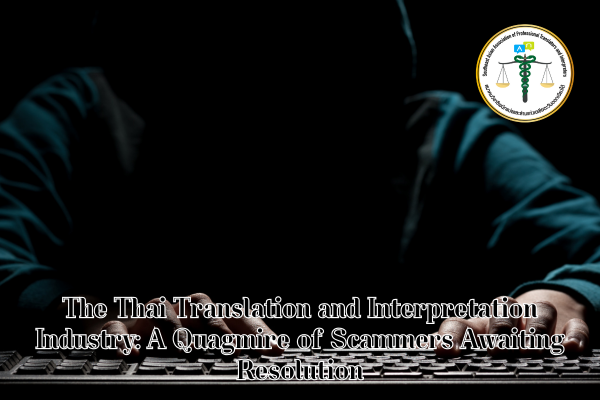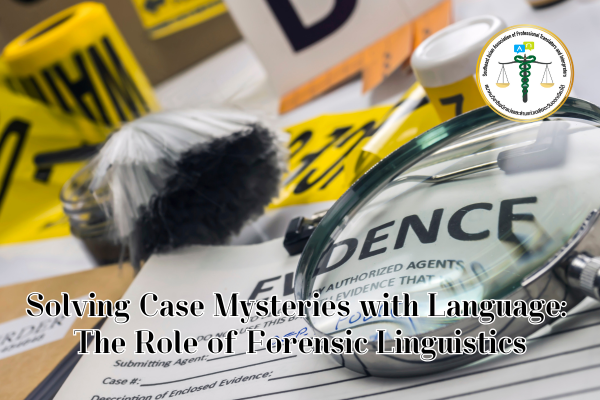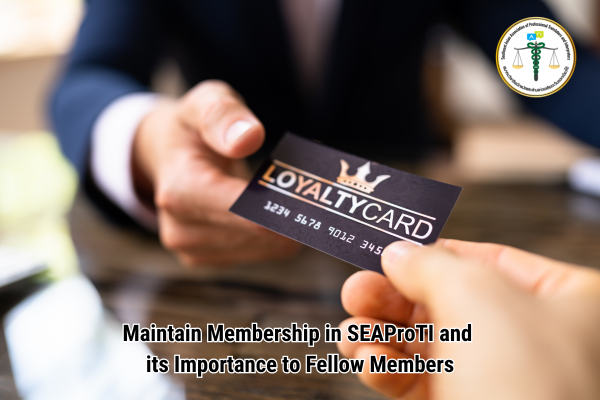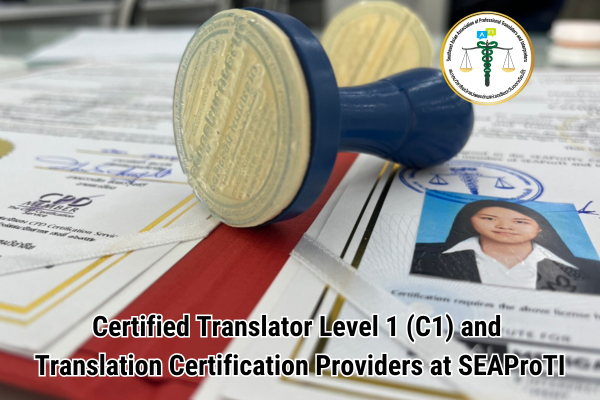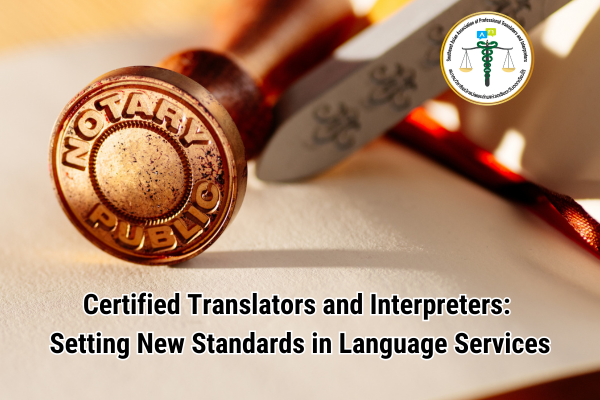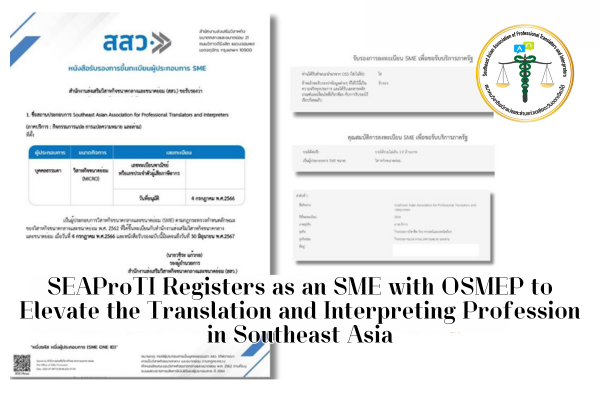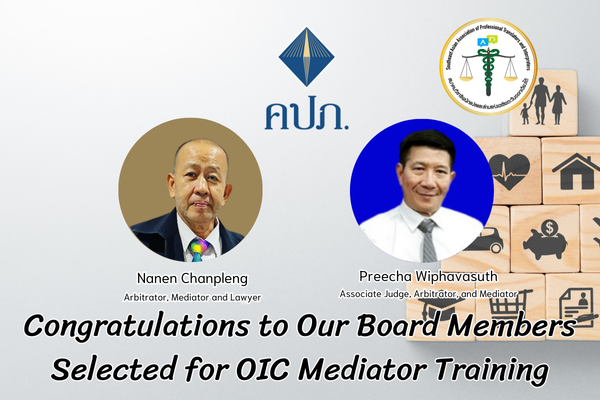Editing Translations for Legalization and Visa Applications (Non-B and MOU):
Why It Matters for Certified Translators and Translation Certification Providers
28 March 2025, Bangkok – Ensuring accurate, complete, and reliable translated documents in international employment and cooperation is a crucial step that cannot be overlooked. This is especially true regarding legalization processes, applications for Non-Immigrant B visas (for work), and MOU-based arrangements for foreign workers. These procedures heavily rely on high-quality translation and professional certification.
1. Editing Translations: The Heart of Legal Accuracy
No matter how skilled a translator may be, editing or revising a translation by a language and legal expert remains essential. A single mistranslated term can alter the legal meaning of an entire document or lead to rejection by government agencies or embassies. Editing is the “final checkpoint” that ensures translated documents are accurate, complete, and aligned with legal and procedural expectations.
2. Non-B Visas and MOU: Precision Matters, Because Consequences Are Real
Documents submitted for Non-B visa applications—such as employment certificates, job contracts, professional licenses, or invitation letters—must be correctly translated and adequately certified. When Memoranda of Understanding (MOUs) are in place between the Thai government and source countries of migrant workers (e.g., Myanmar, Laos, Cambodia, Vietnam), translation accuracy becomes even more critical regarding legal content and cultural context.
Errors or ambiguities in translation can lead to visa delays, application rejections, financial loss, and diplomatic tensions.
3. The Role of Certified Translators and Translation Certification Providers
-
Certified Translators must understand the legal system and administrative procedures associated with official document translation and visa application processes. They must produce translations that are accurate and formatted according to accepted standards, including their name, certification number, and signature.
-
Translation Certification Providers (such as recognized translation centers or professional institutions) must have robust quality control systems, employ qualified translators, and issue official certificates of translation accepted by state agencies, embassies, and international organizations.
Having a certifying seal or stamp from a professional body confirms that the translation was produced by qualified professionals and thoroughly reviewed for accuracy.
4. SEAProTI: A Model of Trustworthy Professional Standards
In Thailand, the Southeast Asian Association of Professional Translators and Interpreters (SEAProTI) offers a structured certification system for translators and translation reviewers. It maintains a registry of Certified Translators and Certified Translation Verifiers, who vet translations for legalization, visa applications, and official submissions domestically and abroad.
Conclusion: Good Translation = Better Opportunities
In a world where labor mobility and international collaboration are the norm, translation is no longer just about converting words—it’s about building credibility and protecting rights. Professional editing, certified translators, and reliable certification services are not optional luxuries—they are vital tools that impact real people and organizations.
SEAProTI’s certified translators, translation certification providers, and certified interpreters:
The Southeast Asian Association of Professional Translators and Interpreters (SEAProTI) has officially announced the criteria and qualifications for individuals to register as “Certified Translators,” “Translation Certification Providers,” and “Certified Interpreters” under the association’s regulations. These guidelines are detailed in Sections 9 and 10 of the Royal Thai Government Gazette, issued by the Secretariat of the Cabinet under the Office of the Prime Minister of the Kingdom of Thailand, dated July 25, 2024, Volume 141, Part 66 Ng, Page 100.
To read the full publication, visit: the Royal Thai Government Gazette
การตรวจแก้คำแปลเพื่อการนิติกรณ์เอกสาร และการขอวีซ่าประเภท Non-B และ MOU สำหรับแรงงานต่างชาติ:
ความสำคัญต่อ “นักแปลรับรอง” และ “ผู้รับรองการแปล”
28 มีนาคม 2568, กรุงเทพ – ในการขับเคลื่อนการจ้างงานและความร่วมมือระหว่างประเทศ การจัดเตรียมเอกสารแปลที่ถูกต้อง ครบถ้วน และมีความน่าเชื่อถือ เป็นขั้นตอนสำคัญที่ไม่อาจมองข้าม โดยเฉพาะอย่างยิ่งในบริบทของการนิติกรณ์เอกสาร (Legalization) และการยื่นขอวีซ่าประเภท Non-Immigrant B (เพื่อการทำงาน) รวมถึง MOU สำหรับแรงงานต่างชาติ ซึ่งล้วนเป็นกระบวนการที่ต้องพึ่งพาคุณภาพของการแปลและการรับรองการแปลอย่างมืออาชีพ
1. การตรวจแก้คำแปล: หัวใจของความถูกต้องตามกฎหมาย
แม้นักแปลจะมีความชำนาญเพียงใด การตรวจทานคำแปล (Translation Editing or Revision) โดยผู้เชี่ยวชาญด้านภาษาและกฎหมายก็ยังคงเป็นขั้นตอนจำเป็น การใช้ศัพท์ผิดเพียงคำเดียวอาจทำให้เอกสารทั้งฉบับสูญเสียความหมายทางกฎหมาย หรือถูกปฏิเสธจากหน่วยงานรัฐหรือสถานทูตได้ การตรวจแก้คำแปลจึงเปรียบได้กับ “ด่านสุดท้าย” ที่ช่วยให้เอกสารแปลมีความครบถ้วน ถูกต้อง และสอดคล้องกับวัตถุประสงค์ทางกฎหมาย
2. วีซ่าประเภท Non-B และ MOU: เอกสารต้องเป๊ะ เพราะผลกระทบจริง
เอกสารที่ใช้ในการยื่นขอวีซ่าประเภท Non-B เช่น หนังสือรับรองการจ้างงาน สัญญาจ้างงาน ใบอนุญาตประกอบวิชาชีพ หรือหนังสือจากบริษัทผู้เชิญ ต่างต้องผ่านการแปลและรับรองอย่างถูกต้อง โดยเฉพาะเมื่อมีการทำ MOU ระหว่างรัฐบาลไทยกับประเทศต้นทางของแรงงานต่างชาติ เช่น เมียนมา ลาว กัมพูชา หรือเวียดนาม ยิ่งต้องอาศัยการแปลที่มีความถูกต้องทั้งในแง่เนื้อหา กฎหมาย และบริบทวัฒนธรรม
หากแปลผิดพลาดหรือขาดความชัดเจน อาจนำไปสู่ความล่าช้าในการออกวีซ่า การถูกปฏิเสธคำขอ หรือแม้แต่ความเสียหายทางธุรกิจและความสัมพันธ์ระหว่างประเทศ
3. ความสำคัญของ “นักแปลรับรอง” และ “ผู้รับรองการแปล”
-
นักแปลรับรอง (Certified Translator) ต้องมีความเข้าใจในระบบกฎหมายและกระบวนการราชการที่เกี่ยวข้องกับการแปลเอกสารราชการและเอกสารสำหรับการขอวีซ่า โดยต้องสามารถแปลเอกสารได้อย่างถูกต้องตามแบบแผน พร้อมระบุชื่อ หมายเลขสมาชิก และลงนามรับรอง
-
ผู้รับรองการแปล (Translation Certification Provider) เช่น ศูนย์แปลที่ได้รับการรับรองจากสมาคมวิชาชีพ ต้องมีระบบตรวจสอบคุณภาพ คัดกรองนักแปลมืออาชีพ และออกใบรับรองการแปลที่ได้รับการยอมรับจากหน่วยงานรัฐ สถานทูต และองค์กรต่างชาติ
การมี “ตรารับรอง” หรือ “ตราประทับของหน่วยงานวิชาชีพ” ช่วยยืนยันว่าเอกสารนั้นแปลโดยผู้ที่มีคุณสมบัติตามมาตรฐานสากล และผ่านการตรวจสอบคุณภาพอย่างรอบคอบ
4. SEAProTI: ตัวอย่างของระบบวิชาชีพที่เชื่อถือได้
ในประเทศไทย สมาคมวิชาชีพนักแปลและล่ามแห่งเอเชียตะวันออกเฉียงใต้ (SEAProTI) เป็นองค์กรที่มีระบบการรับรองนักแปลและผู้ตรวจสอบคุณภาพการแปล โดยมีทั้งนักแปลรับรอง (Certified Translators) และผู้ตรวจสอบการแปลรับรอง (Certified Translation Verifiers) ซึ่งทำหน้าที่คัดกรองเอกสารแปลสำหรับการนิติกรณ์ การยื่นวีซ่า และการยื่นขอเอกสารราชการในประเทศและต่างประเทศ
สรุป: แปลดี “เท่ากับ” โอกาสดี
ในโลกที่การเคลื่อนย้ายแรงงานและความร่วมมือระหว่างประเทศเป็นเรื่องปกติ เอกสารแปลไม่ใช่แค่การแปลงภาษา แต่คือ “การสร้างความน่าเชื่อถือ” และ “การรับรองสิทธิ” ที่แท้จริง การตรวจแก้คำแปลอย่างมืออาชีพ การใช้บริการนักแปลรับรอง และการจัดเตรียมเอกสารที่ได้มาตรฐานจากผู้ให้บริการที่เชื่อถือได้ จึงไม่ใช่ทางเลือก แต่คือความจำเป็นที่มีผลต่อชีวิตคนและองค์กร
เกี่ยวกับนักแปลรับรอง ผู้รับรองการแปล และล่ามรับรองของสมาคมวิชาชีพนักแปลและล่ามแห่งเอเชียตะวันออกเฉียงใต้
สมาคมวิชาชีพนักแปลและล่ามแห่งเอเชียตะวันออกเฉียงใต้ (SEAProTI) ได้ประกาศหลักเกณฑ์และคุณสมบัติผู้ที่ขึ้นทะเบียนเป็น “นักแปลรับรอง (Certified Translators) และผู้รับรองการแปล (Translation Certification Providers) และล่ามรับรอง (Certified Interpreters)” ของสมาคม หมวดที่ 9 และหมวดที่ 10 ในราชกิจจานุเบกษา ของสำนักเลขาธิการคณะรัฐมนตรี ในสำนักนายกรัฐมนตรี แห่งราชอาณาจักรไทย ลงวันที่ 25 ก.ค. 2567 เล่มที่ 141 ตอนที่ 66 ง หน้า 100 อ่านฉบับเต็มได้ที่: นักแปลรับรอง ผู้รับรองการแปล และล่ามรับรอง



